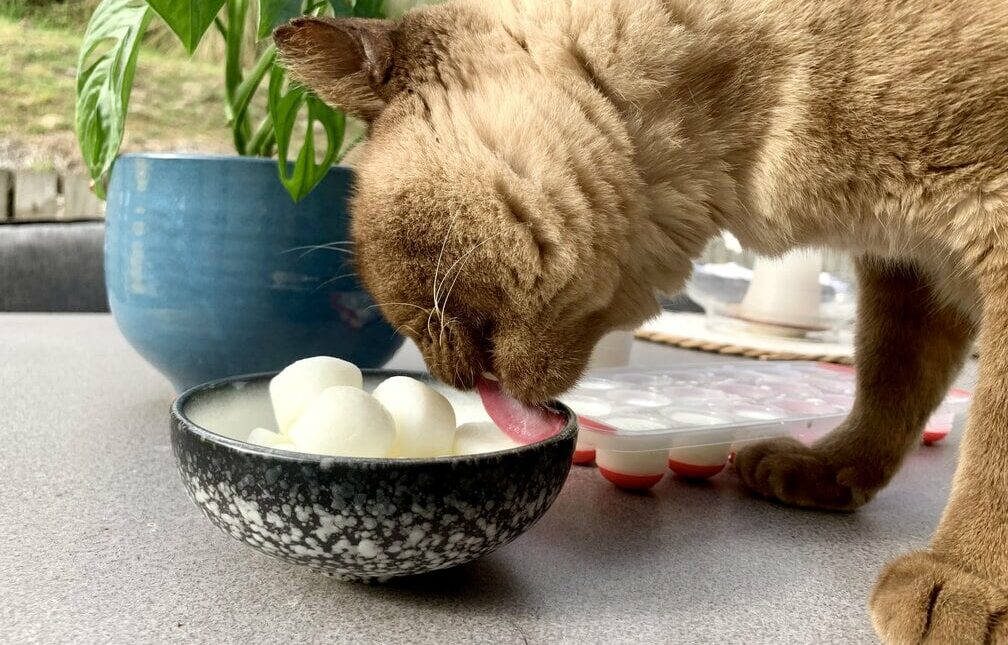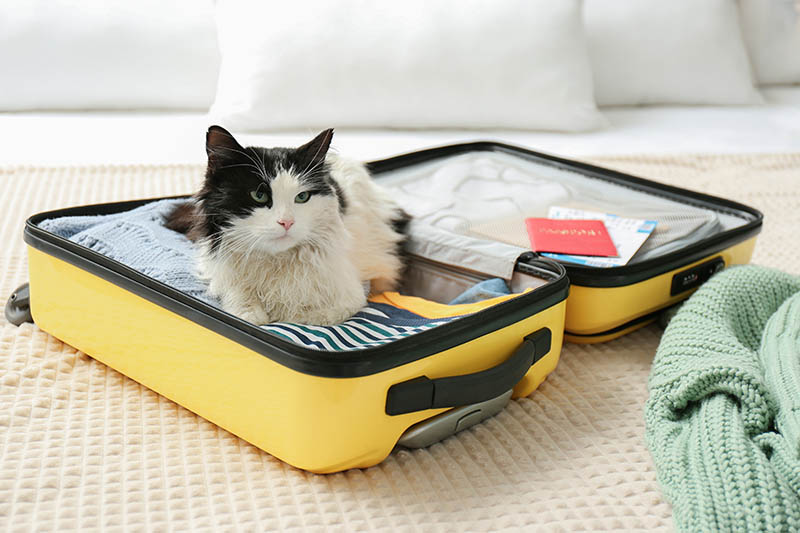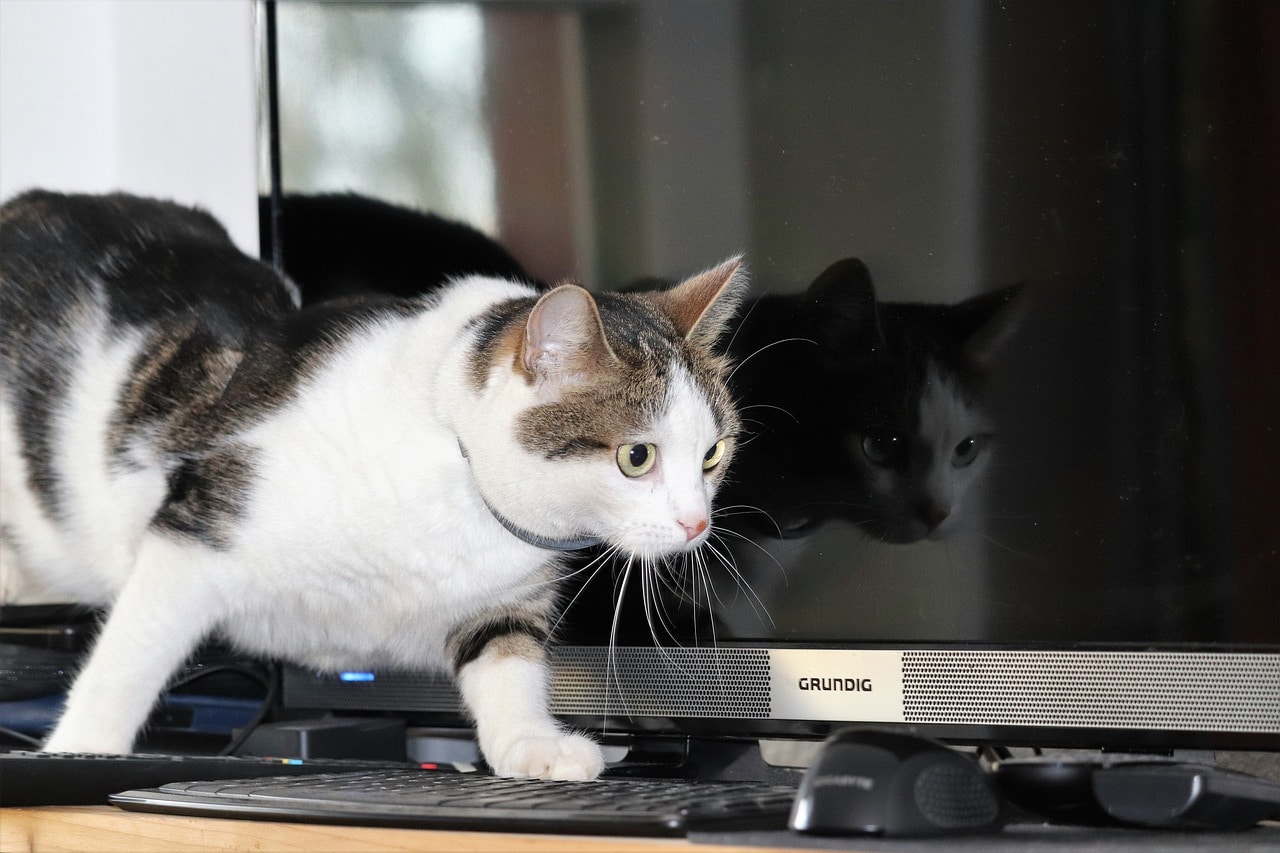At What Age Do Kittens Start to Calm Down? Vet-Reviewed Facts & FAQ

Updated on
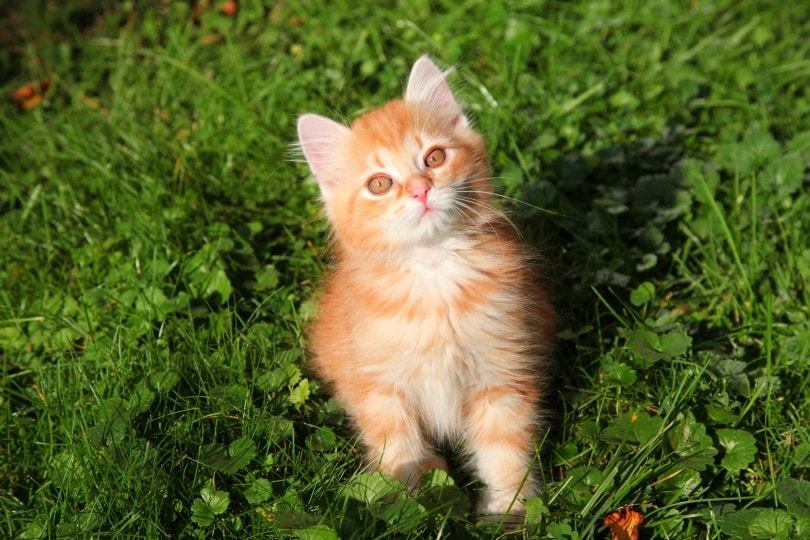
Kittens are wonderful. They’re cute, cuddly, and fun to play with. And, once they get past the phase of sleeping most of the day, they’re insane little bundles of energy! Kittens are known for their hyperactive natures, and while it can be amusing to watch them jump in and out of boxes for hours at a time, at a certain point, you’ll likely start wondering if they’ll ever start to calm down.
The good news is they will. There’s no specific age when kittens start to calm down, but cats become more mellow as they age. By the time your kitten begins transitioning from “teenager” (starting around 6 months) to full adult (1 year and up), they should start becoming calmer. Leaving adolescence behind doesn’t mean your cat won’t still be playful; they’ll just have more periods of calmness than they did before.
Every cat is different, though, so your cat might start calming down a bit earlier or later. Plus, some cat breeds are just more active than others. Here, we’ll take an in-depth look at the kind of energy levels you’re looking at as your kitten ages, which breeds are more active than others, and ways you can help calm your kitten down.
At What Age Are Kittens Most Hyper?
Kittens start their hyperactive phase at around 10 weeks old but don’t truly get into the stage of seemingly endless energy until about 3 months old. Your kitten may be playful for the first couple of months of its life, but because it hasn’t yet fully developed muscle coordination, it can’t really go wild. But by 3 months of age, their senses are pretty well developed, and they are learning to play.
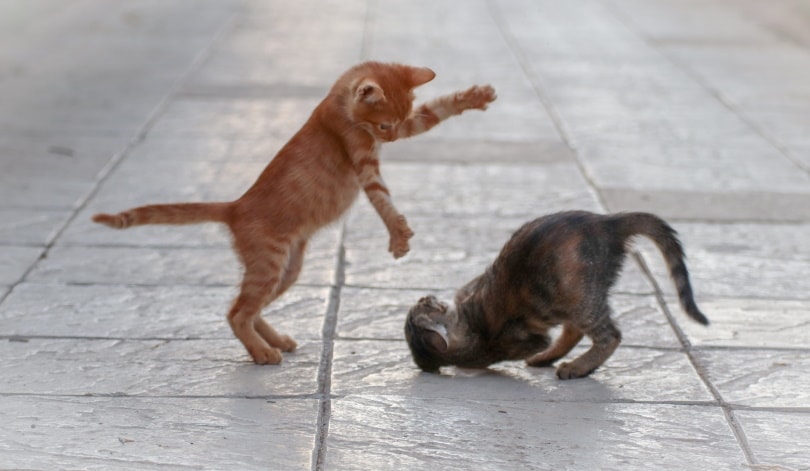
This stage is when your kitten’s energy levels will shoot through the roof. They will play with you and other animals and start playing with toys (particularly ones they can “hunt”). This phase is important because they’re learning how and when to use nails and teeth, but it can also be their most destructive. Cats are naturally curious, and your little one will get into anything and everything they can get their tiny paws on!
Once they’ve reached the adolescent stage (approximately 6 months), you might see a slight dip in energy levels, but you’re also likely to see some rebellion. Much like human teenagers, teenage cats want to push boundaries and see what they can get away with, and they’ll do it with you, as well as older cats. But a few months into this phase, as they move more towards being an adult, you’ll slowly see them start to settle.
What Are the Most Active Kitten Breeds?
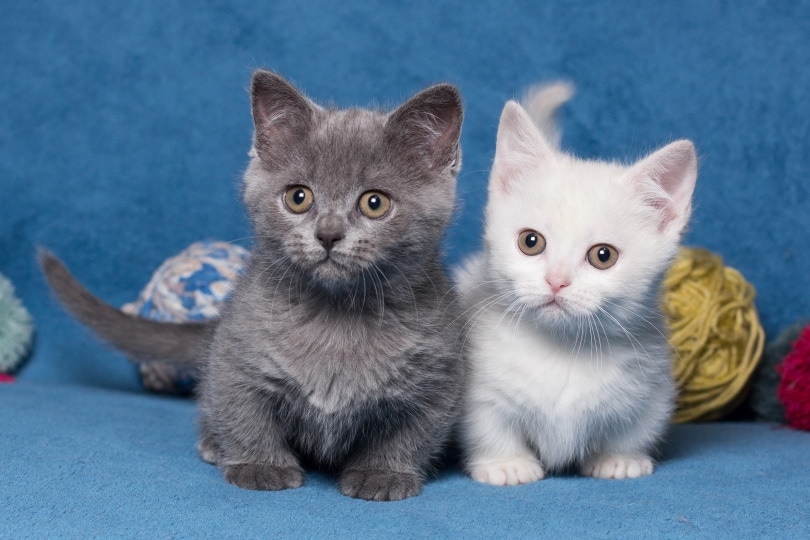
Does your kitten seem more hyper than others? You may just have a breed of cat that is, by nature, more active and playful than most. These breeds include:
If you own one of these, your kitten’s “crazy cat” phase may be a little longer. However, it is important to note that your kitten’s individual personality may play a major role in their activity levels as well. Therefore, kittens of any breed may be exceptionally active depending on their individual idiosyncrasies. Likewise, you may also end up with a kitten of one of these breeds that isn’t as active as you’d assume!
 The 5 Ways You Can Calm Down an Energetic Kitten
The 5 Ways You Can Calm Down an Energetic Kitten
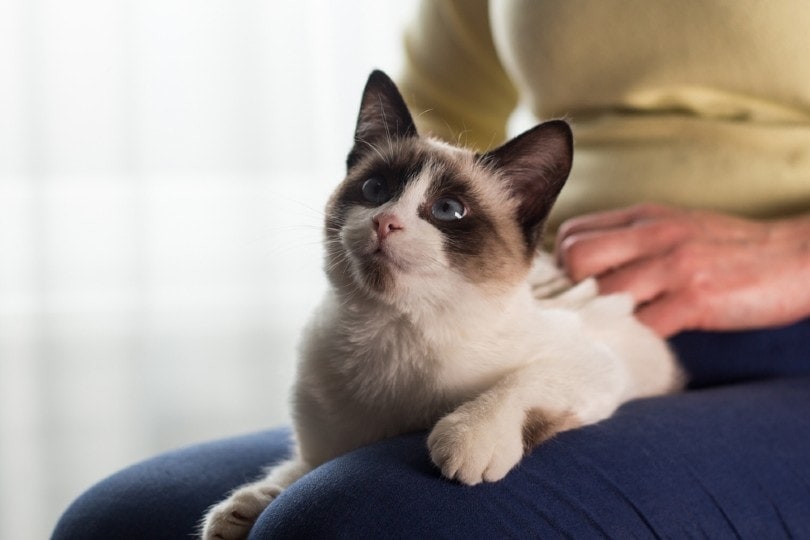
It probably seems like an impossible feat when your kitten has the zoomies and is literally climbing the walls, but there are ways you can help your overactive kitten chill out just a bit. Try utilizing one (or more!) of these methods to help your tiny feline calm down.
1. Play With Your Cat but Do It Correctly
Not only does spending time playing with your kitten help you guys to bond, but it also helps wear them out. However, you shouldn’t use your hands or feet to play with your kitten, as that will make them think that parts of the human body are toys, leading to inappropriate play in the future. It may be adorable when they attack your ankles while tiny, but a full-grown cat doing that will be much less fun.
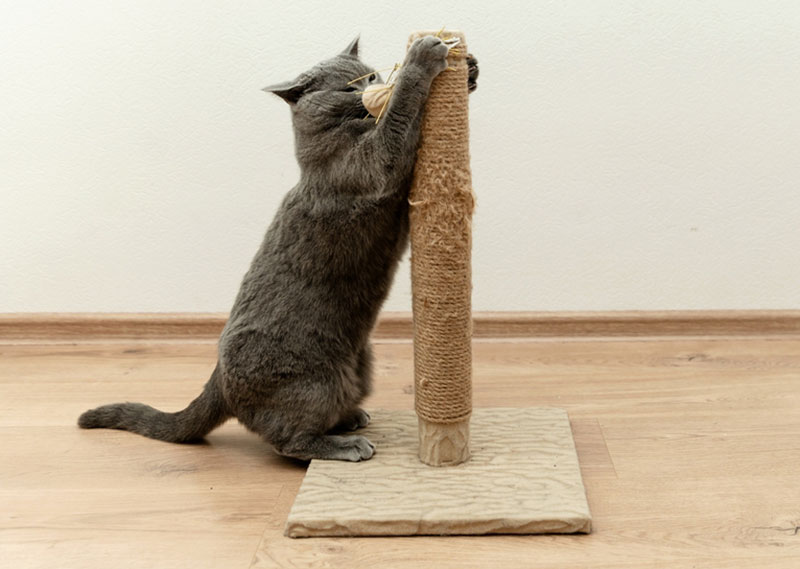
2. Tap Into Your Kitten’s Instincts
If your kitten is causing chaos, redirect their energy into something more suitable by letting their hunting instincts out. Use a toy they can chase and “hunt,” whether that’s you tossing a toy mouse around or a toy that operates on its own.
3. Provide Plenty of Cat Trees and Scratching Posts
Cats love to scratch, and scratching will help release some energy. So, make sure your kitten has at least one scratching post all to itself (this can also help curb destructive behavior). Cats enjoy climbing as well, and having the ability to do so inside the home gives them more room to be active, making cat trees a must.
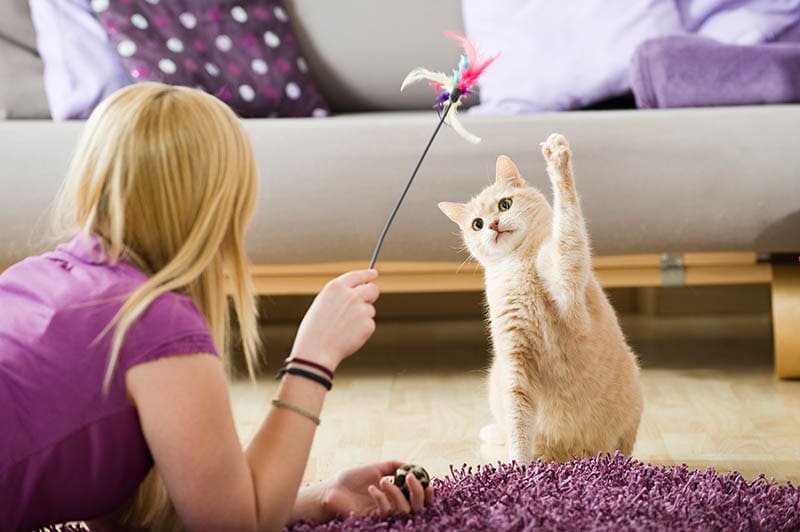
4. Up the Ante When It Comes to Treats
Engage your kitten during treat time with a puzzle toy. Making them work harder for their treats will burn some energy and keep them entertained.
5. Give Your Kitten a Friend
Sometimes, being overly energetic is a result of boredom, and toys don’t always work for that. You might want to adopt more than one kitten at a time, or if you already have one kitten, adopt another. With them playing together, they should be able to work off a lot of that hyperactivity!
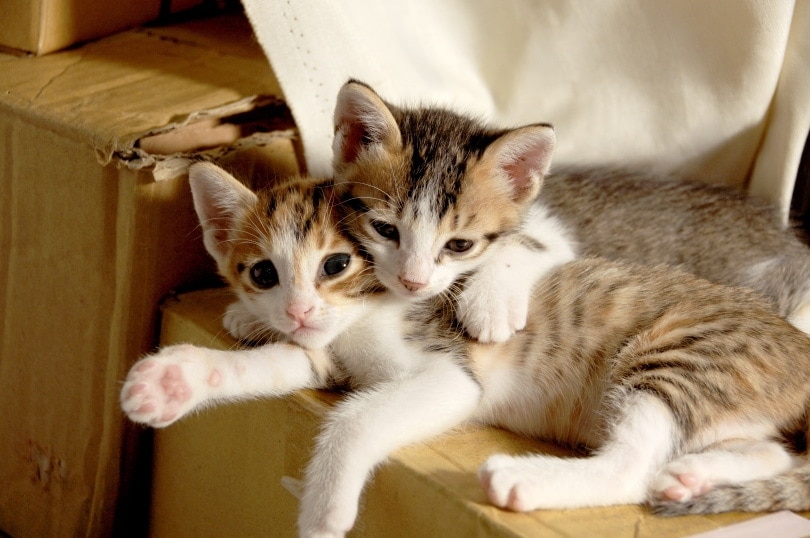
Final Thoughts
It may feel as though your kitten is purposely trying to drive you mad with its constant energetic behavior, but never fear! Eventually, your kitten will calm down. When exactly that occurs can vary depending on the breed of cat you have, but kittens should begin calming down a few months into their adolescent stage (between 8-12 months). Once that happens, you can start enjoying more time snuggling with your feline baby and less time cleaning up after the chaos they’ve caused. Until that happens, though, you can try the techniques mentioned above to help tame their hyperactive natures just a bit.
- You might also be interested in: At What Age Will My Cat Stop Growing?
Featured Image Credit: irene857, Pixabay


 The 5 Ways You Can Calm Down an Energetic Kitten
The 5 Ways You Can Calm Down an Energetic Kitten